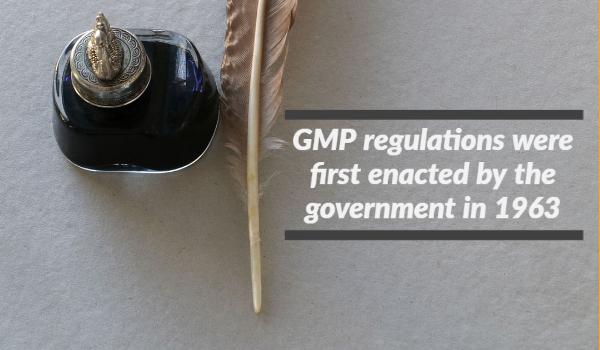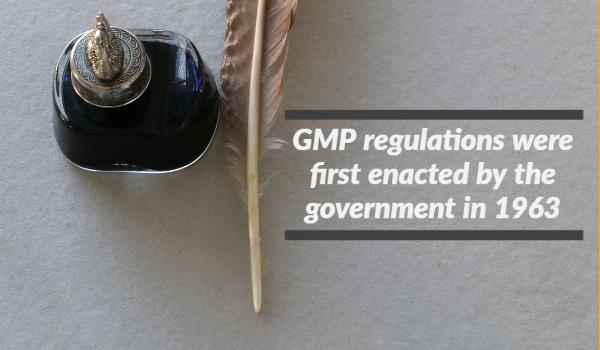

With today’s electronic sensing devices, the humidity of pharmaceutical cleanrooms can now be maintained and monitored with tolerances as small as one percent. Technology that helps monitor and control environmental factors is crucial for pharmaceutical, food, and cosmetic development, and related to these control factors is GMP quality control.
What Are GMP Standards?
Good manufacturing practices — GMP — are regulations set forth by the Food and Drug Administration to ensure that industries produce goods that are safe for civilian use. These regulations cover development, manufacturing, and storage, stipulating how processes should be completed, controlled, and monitored. Following GMP quality assurance protocols help industries maintain high standards and deliver products that have been tested thoroughly to ensure quality.
GMP quality control is crucial for establishing strong operating procedures that maintain the integrity of products. This is because of the stipulations regarding environmental conditions that correspond with testing and storage facilities. By ensuring that the highest standards are met during the testing, development, and storage stages, manufacturers can expect to mitigate testing failures, unnecessary contamination, errors related to environmental factors, and harmful deviations.
Why is GMP Quality Control Important?
GMP quality control measures are put in place and mandated by the government to ensure that pharmaceuticals, medical devices, food, and cosmetics, are safe for mass distribution. This helps ensure that none of the produced products contain harmful substances or contaminations that could otherwise cause problems to consumers. GMP quality control can also help mitigate the need for recalls or lawsuits that can arise should a faulty or defective product make it out into the market. For instance, GMP regulations were first enacted by the government in 1963, after thalidomide was nearly sold in the United States. Thalidomide had previously been linked to over 10,000 cases of birth defects in Europe and, without the resulting regulations, could have gone on to cause similar problems in the U.S.
Today the government enacted GMPs are more flexible and allow for manufacturer discretion within reason. This allows industries to collaborate and enact their own effective means for quality control and GMP storage conditions. Furthermore, this also allows manufacturers to take advantage of more technological advancements, as mentioned above, to ensure a greater level of control can be obtained throughout the development, manufacturing, and storage stages.
The Purpose of GMP Quality Controls
A consumer cannot, on their own, determine whether a drug, cosmetic, or food is effective or safe for application or consumption. One way manufacturers can help prevent defective products from making their way out into the market is by conducting testing at various stages of production. While this step can help, it also isn’t enough on its own. GMP protocols and training are essential for ensuring products are handled properly throughout the manufacturing process without risking contamination. All facilities should be well maintained and in good condition with hygiene and cleanroom guidelines strictly adhered to by all staff. Everyone should be trained in GMPs and know not to cut corners during any step of the process. Likewise, all equipment should be maintained, calibrated, cleaned, and verified as recommended and as needed. These facets are covered most by GMP regulations and adapting procedures to follow can improve product quality and ensure that risks of contamination and recall are mitigated.
How Do GMPs Differ from Other Quality Assurance Types?
While other methods of quality assurance exist, GMP is the only that is mandatory for manufacturers to follow. For instance, ISO quality certifications are encouraged but not required for manufacturers of food, drugs, or cosmetics. GMP is also the only one to include guidelines related to the verification of each process, preventative actions, the qualifications of vendors, and good laboratory practices, making it both thorough and comprehensive.
GMP quality control is essential for many industries, especially those that make topical or consumable products. Always be sure to know the guideless that affect your industry to avoid the risk of recall, lawsuits, or sanctions. Furthermore, if you utilize an outside storage facility, ensure that they too know GMP guidelines and how to follow them.
